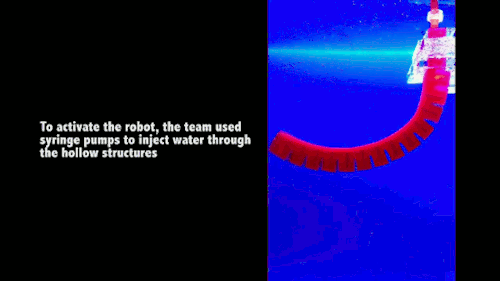Cool! Go Theoretical -and Experimental-physics!
Cool! Go theoretical -and experimental-physics!

Heating up exotic topological insulators
Fashion is changing in the avant-garde world of next-generation computer component materials. Traditional semiconductors like silicon are releasing their last new lines. Exotic materials called topological insulators (TIs) are on their way in. And when it comes to cool, nitrogen is the new helium.
This was clearly on display in a novel experiment at the National Institute of Standards and Technology (NIST) that was performed by a multi-institutional collaboration including UCLA, NIST and the Beijing Institute of Technology in China.
Topological insulators are a new class of materials that were discovered less than a decade ago after earlier theoretical work, recognized in the 2016 Nobel Prize in physics, predicted they could exist. The materials are electrical insulators on the inside and they conduct electricity on the outer surface. They are exciting to computer designers because electric current travels along them without shedding heat, meaning components made from them could reduce the high heat production that plagues modern computers. They also might be harnessed one day in quantum computers, which would exploit less familiar properties of electrons, such as their spin, to make calculations in entirely new ways. When TIs conduct electricity, all of the electrons flowing in one direction have the same spin, a useful property that quantum computer designers could harness.
Read more.
More Posts from Smparticle2 and Others










The Landscapes and Skylines of Howl’s Moving Castle ハウルの動く城
More art, less pollution
Week in Brief (27 November – 1 December)

Credit: Christine Daniloff/MIT
Artists can now paint with ink made from polluted air. Start-up company Graviky Labs has developed a device that attaches to the exhaust systems of diesel generator chimneys, catching emissions, which are then converted into inks, called Air-Ink.
The devices – known as KAALINK devices – are currently being trialled across India. So far more than 200 gallons of Air-Ink have been produced from collected emissions. KAALINK relies on static electricity, whereby energised materials attract particles. Inside the device are cartridges filled with high-energy plasma, which is triggered by a voltage to attract emission particles.
The disposable cartridges, which need to be emptied after 15–20 days, are then sent to Graviky Labs collection units. From these, they are sent to the start-up’s lab for treatment, where heavy metals and toxins are removed.
Graviky Lab’s Anirudh Sharma, an Interdisciplinary researcher at MIT Media Lab, commented, ‘Other processes convert air pollution into water pollution, and essentially generate more waste. We minimise the process and create a recycling stream from particulate matter waste that would have otherwise gone into our lungs.’

Credit: Graviky Labs
To find out more visit, bit.ly/2hXCRgX
In other news:
– Co-op and Iceland have backed a potential bottle deposit scheme
– A mission testing methods to clean-up space junk is preparing for launch
– Siemens, Rolls-Royce and Airbus are to collaborate on the development a of hybrid-electric aircraft
To find out more on materials science, packaging and engineering news, visit our website IOM3 at or follow us on Twitter @MaterialsWorld for regular news updates.








Moonlight











Austria
Taken By SusanK31
Your blog is super cool! I have a few questions. How do you get your equipment and chemicals to carry out your experiments? I was just wondering as I'd like to start doing experiments at home. What would be a good experiment to start with also? Sorry if you have already answered these questions
Hey, thanks for the kind words! This is going to be a long answer! Let’s start with equipment:
Keep reading



A research group at MIT has created a new class of fast-acting, soft robots from hydrogels. The robots are activated by pumping water in or out of hollow, interlocking chambers; depending on the configuration, this can curl or stretch parts of the robot. The hydrogel bots can move quickly enough to catch and release a live fish without harming it. (Which is a feat of speed I can’t even manage.) Because hydrogels are polymer gels consisting primarily of water, the robots could be especially helpful in biomedical applications, where their components may be less likely to be rejected by the body. For more, see MIT News or the original paper. (Image credit: H. Yuk/MIT News, source; research credit: H. Yuk et al.)

Packing numerous books and papers that he plans to read over winter break, the grad student deludes himself.




-
 thoths-foundry-blog reblogged this · 8 years ago
thoths-foundry-blog reblogged this · 8 years ago -
 jeh910035 liked this · 8 years ago
jeh910035 liked this · 8 years ago -
 realitychemist reblogged this · 8 years ago
realitychemist reblogged this · 8 years ago -
 realitychemist liked this · 8 years ago
realitychemist liked this · 8 years ago -
 asamamino reblogged this · 8 years ago
asamamino reblogged this · 8 years ago -
 qxzyz liked this · 8 years ago
qxzyz liked this · 8 years ago -
 ares-mec liked this · 8 years ago
ares-mec liked this · 8 years ago -
 smparticle2 reblogged this · 8 years ago
smparticle2 reblogged this · 8 years ago -
 al8675309 liked this · 8 years ago
al8675309 liked this · 8 years ago -
 intrepideadrienne reblogged this · 8 years ago
intrepideadrienne reblogged this · 8 years ago -
 edmunsen liked this · 8 years ago
edmunsen liked this · 8 years ago -
 vavelix reblogged this · 8 years ago
vavelix reblogged this · 8 years ago -
 vavelix liked this · 8 years ago
vavelix liked this · 8 years ago -
 imall4frogs liked this · 8 years ago
imall4frogs liked this · 8 years ago -
 materialsscienceandengineering reblogged this · 8 years ago
materialsscienceandengineering reblogged this · 8 years ago